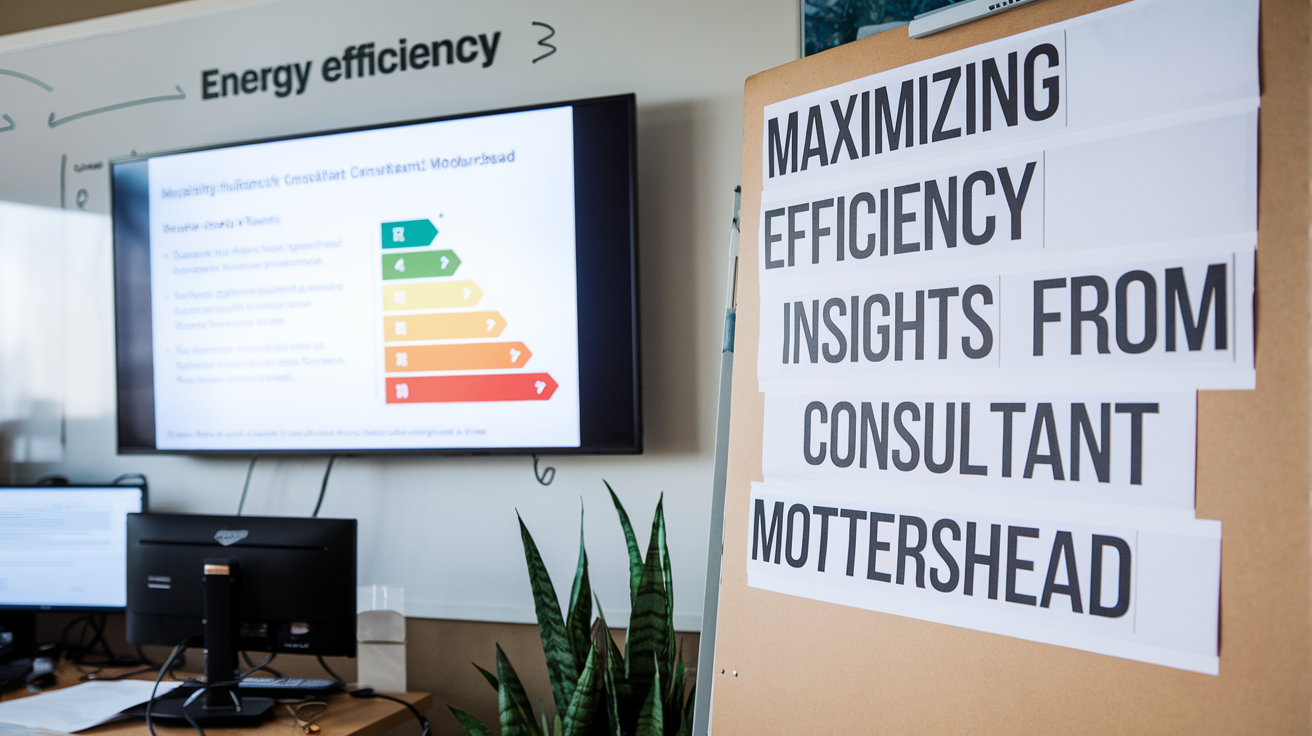Maximizing Efficiency Insights from Board Utility Consultant Mottershead
Efficiency is the cornerstone of success for any utility board. In a rapidly evolving industry, where technological advancements and regulatory changes are constant, the ability to operate at peak efficiency can make or break an organization.
Board Utility Consultant Mottershead has dedicated years to refining strategies that not only enhance operational efficiency but also drive long-term success. In this article, we’ll delve into the key insights and actionable strategies shared by Consultant Mottershead to help utility boards maximize their efficiency.
Understanding the Current Landscape
Utility boards operate in a complex environment where challenges are multifaceted. Mottershead emphasizes the importance of thoroughly understanding the current landscape.
This involves staying updated with industry trends, regulatory changes, and technological advancements. By keeping a finger on the pulse of the industry, boards can anticipate challenges and adapt proactively.
Mottershead advises utility boards to regularly conduct comprehensive industry analyses. This includes evaluating market trends, assessing competitor strategies, and understanding customer expectations. With this information, boards can make informed decisions that align with both current needs and future demands.
Strategic Planning and Goal Setting
Efficiency starts with clear, strategic planning. Mottershead highlights that a well-defined plan acts as a roadmap, guiding boards towards their objectives. He recommends setting SMART goals—Specific, Measurable, Achievable, Relevant, and Time-bound. These goals should be aligned with the overall mission of the organization and should be regularly reviewed and adjusted as necessary.
Mottershead also stresses the importance of involving all board members in the planning process. Collective input ensures that the goals set are comprehensive and that all members are on the same page. This collaborative approach fosters a sense of ownership and accountability, which is crucial for achieving efficiency.
Enhancing Communication
Effective communication is vital for maximizing efficiency. Mottershead points out that clear, concise communication prevents misunderstandings and ensures that everyone is working towards the same objectives.
Mottershead also encourages open dialogue among board members. Encouraging questions, feedback, and discussions fosters a culture of transparency and trust.
When board members feel comfortable sharing their ideas and concerns, the board can make more informed and effective decisions.
Leveraging Technology
Technology plays a crucial role in enhancing board efficiency. Mottershead advocates for the adoption of digital tools and platforms that streamline operations and improve decision-making processes. He highlights the importance of using data analytics to gain insights into operations and customer behavior. By leveraging data, utility boards can identify inefficiencies, predict future trends, and make data-driven decisions.
Mottershead also recommends investing in project management software that allows boards to track progress, manage resources, and meet deadlines more effectively. These tools can significantly reduce the time and effort required to manage complex projects, allowing boards to focus on strategic decision-making.
Continuous Improvement
Efficiency is not a one-time achievement but a continuous process. Mottershead advises utility boards to adopt a culture of continuous improvement. This involves regularly reviewing and assessing processes, identifying areas for improvement, and implementing changes as needed.
Mottershead recommends conducting regular performance evaluations to assess the effectiveness of the board’s strategies and operations. These evaluations should be followed by actionable plans to address any identified inefficiencies. By continuously striving for improvement, utility boards can maintain high levels of efficiency and stay ahead of the competition.
Training and Development
A well-trained board is an efficient board. Mottershead emphasizes the importance of investing in training and development for board members. This ensures that they have the necessary skills and knowledge to perform their roles effectively.
Mottershead suggests offering regular training sessions on topics such as industry trends, regulatory changes, and best practices in governance. He also recommends providing opportunities for board members to attend conferences and workshops where they can network with industry peers and gain new insights.
Effective Risk Management
Efficiency is closely linked to risk management. Mottershead stresses that utility boards must have a robust risk management strategy in place. This involves identifying potential risks, assessing their impact, and developing mitigation plans.
Mottershead recommends that boards regularly review and update their risk management strategies to ensure they remain effective. This proactive approach to risk management minimizes disruptions and allows the board to operate more efficiently.
Streamlining Decision-Making Processes
Decision-making is at the core of a utility board’s responsibilities. Mottershead highlights the importance of streamlining decision-making processes to enhance efficiency. This involves setting clear criteria for decision-making, establishing timelines, and ensuring that all necessary information is available before decisions are made.
Mottershead also suggests delegating certain decision-making responsibilities to committees or individual board members. This not only speeds up the decision-making process but also allows the board to focus on more strategic issues.
Fostering Collaboration and Teamwork
Collaboration and teamwork are essential for maximizing efficiency. Mottershead emphasizes that board members should work together towards common goals.
Mottershead suggests organizing team-building activities and retreats to strengthen relationships among board members. These activities can help build trust and improve communication, leading to more effective collaboration.
Measuring and Tracking Performance
Finally, Mottershead underscores the importance of measuring and tracking performance. By setting key performance indicators (KPIs) and regularly monitoring progress, boards can ensure that they are on track to meet their goals. Mottershead recommends using dashboards and reporting tools to visualize performance data and make it easily accessible to all board members.
He also advises conducting regular performance reviews to assess the board’s overall efficiency. These reviews should focus on identifying areas where the board is excelling and areas where improvements are needed. By regularly measuring and tracking performance, utility boards can make data-driven decisions and continuously improve their efficiency.
Conclusion
Maximizing efficiency is a critical goal for any utility board, and the insights shared by Board Utility Consultant Mottershead provide a clear roadmap for achieving this objective.
From strategic planning and communication to leveraging technology and fostering collaboration, these strategies are designed to help utility boards operate at peak efficiency.
By adopting a proactive and continuous approach to improvement, utility boards can not only enhance their efficiency but also drive long-term success.
The key is to remain adaptable, stay informed, and always strive for excellence. With the right strategies in place, utility boards can navigate the complexities of the industry and achieve their goals with greater efficiency and effectiveness.

